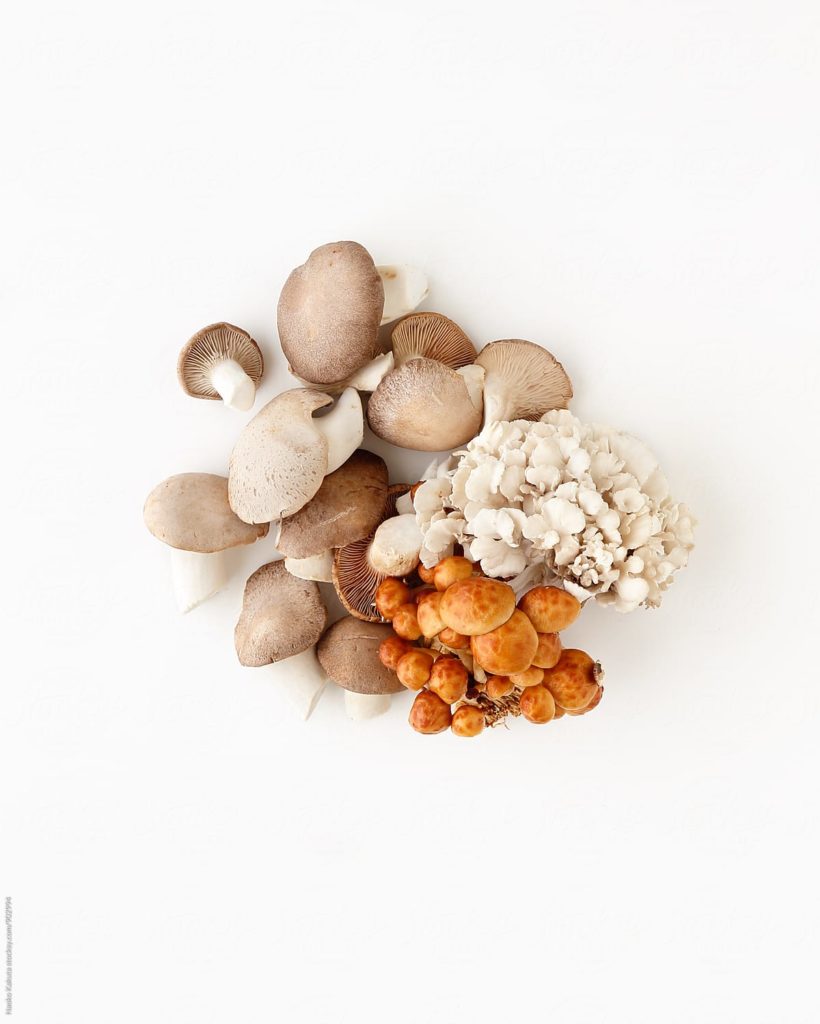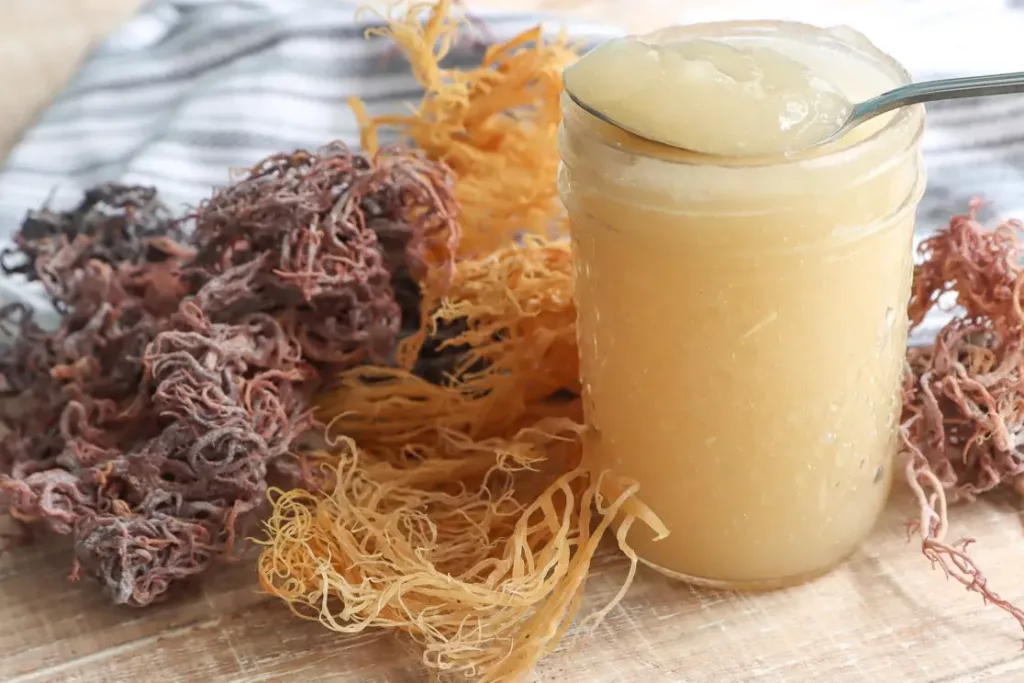Within the world of plants and fungi lie a vast array of medicinal compounds. Sulfated polysaccharides are powerful therapeutic compounds being explored for their anti-viral activity. These polysaccharides are shown to have potent anti-viral effects against viruses like the human papillomavirus (HPV) and the herpes virus (HSV).
Sulfated polysaccharides include compounds like heparin, cellulose sulfate, and dextran sulfate. Structurally, these compounds look very similar to heparan sulfate, an HPV cell-attachment factor. These compounds are found to inhibit papillomavirus and herpes infections due to their ability to block the viruses from attaching to healthy cells.
These polysaccharides also contain potent anti-inflammatory and antioxidant properties that help support cellular health and prevent tumor progression.
Where can you find these potent polysaccharides? Sulfated polysaccharides can be found in some species of medicinal mushroom as well as marine plants like red and brown algae.
Red Algae – Irish Moss (Chondrus crispus)
Irish moss is a type of seaweed or algae that is found on the Atlantic coast in Britain, Europe, and North America. The moss is rich in the sulfated polysaccharide carrageenan. You might know carrageenan from the back of your almond milk or yogurt. It is commonly used as a stabilizer and emulsifier in food products. The carrageenan found in common packaged foods is chemically processed and may even have negative health effects. However, consuming the moss in its pure form offers a range of beneficial vitamins and nutrients. Keep reading for a recipe.
In addition to its rich carrageenan content, Irish moss is also rich in other minerals like iodine, important for thyroid health. It also contains omega-3 fatty acids, which can reduce the risk of heart disease and high blood pressure. The moss also contains a carotenoid called fucoxanthin, which benefits blood sugar regulation and acts as an antioxidant, which we know is important for fighting HPV. Irish moss has been consumed for centuries and was used as a nutrient supply during times of famine.
Carrageenan acts as a potent HPV inhibitor by blocking HPV from binding to its attachment sites. Considering condom use is minimally effective in preventing HPV infection, carrageenan is being explored as a topical microbicide to be used preventatively against HSV, HIV, and HPV. The inhibitory effect appears to be strongest for HPV compared to HSV and HIV. Topical applications were found to be safe and well-tolerated, reporting no increased risk of reproductive tract infections or irritations. So far, carrageenan-containing sexual lubricants have been found to be effective at blocking HPV16.
Brown Algae – Fucoidan
Brown seaweeds contain a sulfated polysaccharide, called fucoidan. Fucoidan is a sulfated alpha L-fucan that has been found to support the immune system, reduce inflammation, and have an impact on blood pressure and infection. Animal studies have shown fucoidan to have a protective effect against liver injury by suppressing inflammatory mediators and increase the production of liver-protective enzymes. The anti-viral activity of fucoidan comes from its natural killer cell stimulation which promotes immune modulation and antitumor effects.
Brown algae also contain fucoxanthin, an antioxidant that gives algae its brown color, as well as other microminerals like iodine for thyroid health.
Fucoidan in brown seaweeds has been reported to possess anti-viral activities against viruses like HIV and HSV. The compound acts by inhibiting virus and entry and replication. More human studies are still needed to support its effects, but the compound could be used preventatively to reduce viral infections.
Lentinus Edodes- Shiitake mushroom
Shiitake mushrooms are one of the most well-known mushroom species. Medicinally, the shiitake mushroom is shown to be effective in the treatment of prostate cancer, can help lower high cholesterol, stimulates the activity of immune cells, and has antiviral and antibacterial properties.
The potent medicinal properties come from their high polysaccharide content of Beta-D-glucans. These glucans have been found to enhance the number of immune cells and have antiviral activity against the poliovirus and herpesvirus.
The beta-D-glucans found in shiitake aid in slowing tumor growth and kill viruses and other microbes.

Agaricus Blazei- Almond Mushroom
Another medicinal mushroom rich in polysaccharides is Agaricus Blazei, also called Agaricus subrufescens. Agaricus is a Brazilian basidiomycete often consumed as food or in tea to help with emotional stress, high cholesterol, diabetes, and gastric disorders.
Agaricus contains active compounds that have repeatedly been shown to activate the immune system and prevent the herpes virus from attaching to and infecting healthy cells. The compound also has anti-inflammatory and antioxidant properties, helping maintain the overall health of the cells.
Reaping the many therapeutic benefits of mushrooms isn’t as easy as eating sauteed mushrooms. Medicinal compounds must be extracted through water or alcohol-based decoctions. These powerful extracts are then taken in tinctures or powdered form.
What are the risks to consuming sulfated polysaccharides?
While generally quite safe for use, mushrooms like shiitake may cause an elevation in white blood cells, upset the stomach, and skin inflammation. Agaricus extracts can cause hypoglycemia, nausea, diarrhea, and upset stomach. Few have also reported liver damage and allergic reactions.
Because seaweeds contain iodine, there is a risk of consuming too much iodine and disrupting thyroid function. Sea vegetables like algae may also be exposed to environmental contaminants like arsenic and mercury. Make sure to purchase these supplements from a reputable source. Algae should not be taken with anticoagulant drugs like warfarin and heparin.
Given the immune stimulatory effects of sulfated polysaccharides, supplements should be taken with caution in individuals with autoimmune or immune system conditions. We always recommend seeking advice from a health care provider before starting any supplement or treatment.

How to reap the benefits of Irish Moss
Irish moss can be bought in raw form or cultured into a gel. The moss can then be used topically or ingested. If taken orally, add 1 heaping tablespoon into a smoothie with frozen mangoes and dates.
- 2 oz of raw Irish moss
- 1700 ml of spring water
To make:
- Wash moss thoroughly in filtered water.
- Soak 2 ounces of dried Irish Moss on the counter in 1700 ml filtered water for one day.
- Simmer on low until a gel is formed.
Irish moss has minimal taste, so it is perfect to blend into smoothies, juices, and soups or strews.
Store in the refrigerator for up to 2-3 weeks or kept frozen.





